Few sanctioned Russian oligarchs disclose UK property, despite new law
Following Moscow's invasion of Ukraine last year, Britain trumpeted new legislation requiring property-ownership disclosure aimed at cracking down on Russian oligarchs and corrupt elites laundering illicit wealth.
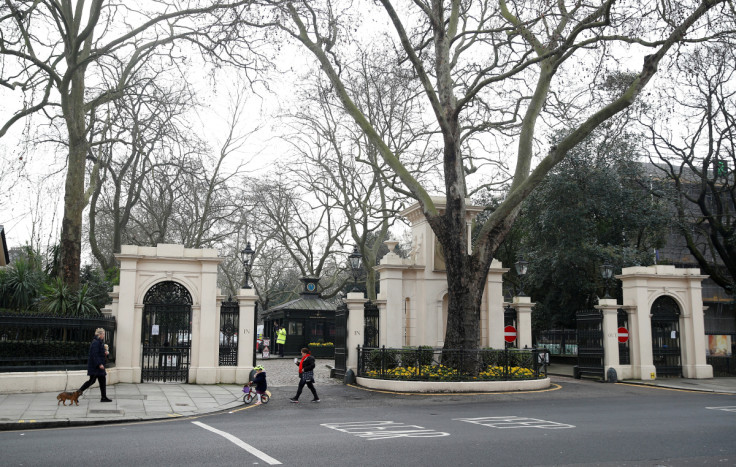
Following Moscow's invasion of Ukraine last year, Britain trumpeted new legislation requiring property-ownership disclosure aimed at cracking down on Russian oligarchs and corrupt elites laundering illicit wealth.
Foreign companies holding UK property have until the end of Tuesday to identify their "beneficial owners" in a new public register, making Britain one of the first countries to do so. But a Reuters analysis of government data found that the people behind thousands of UK-property owning foreign companies remain veiled in secrecy.
More than 19,000 overseas companies had disclosed ownership of UK property as of Tuesday morning in Britain, according to data from Companies House, which runs the new register. That represents about two thirds of all the property-owning foreign companies, based on separate land-ownership records kept by Britain's Land Registry.
About a quarter of the more than 19,000 companies that registered with Companies House didn't identify any individual owners, many of which disclosed entities in countries known for business secrecy, such as the British Virgin Islands or Panama. Government guidance defines a beneficial owner as either an individual or an entity, such as a corporation or trustee.
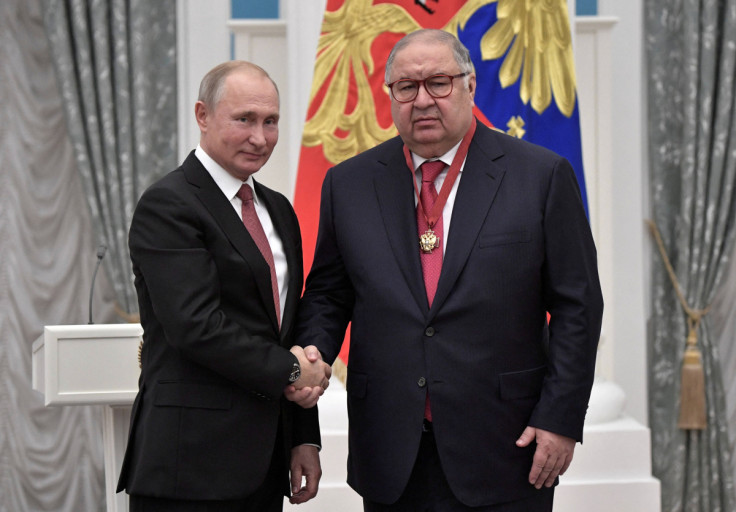
Only four Russian nationals under British government sanctions appeared on the register as of Tuesday morning. They were: Vladimir Potanin, one of Russia's wealthiest businessmen; Russia's former first deputy prime minister Igor Shuvalov and his wife; and Alexander Frolov, the former chief executive officer of Evraz, a Russian steel and mining company.
Absent from the register as of Tuesday morning were some sanctioned Russians who have been linked to UK properties, including Roman Abramovich.
The Register of Overseas Entities is part of a wider economic crime law enacted last year that the government said would help prevent Russian oligarchs laundering money in UK property. The legislation leaves backers of Russian President Vladimir Putin "nowhere to hide" in Britain, then Prime Minister Boris Johnson said at the time.
Britain's experience highlights the challenges for governments trying to increase transparency in an effort to combat the flow of illicit funds.
Reuters was unable to determine to what degree the shortfall in disclosure was due to the use of legitimate exemptions rather than property owners' failure to comply with the rules or other reasons, such as companies having been dissolved. Transparency advocates, politicians and others have criticised the government for leaving loopholes that allow wealthy individuals to avoid making disclosures, such as through the use of trusts.
Downing Street referred requests for comment to the business ministry, which oversees Companies House, Britain's public registry of companies.
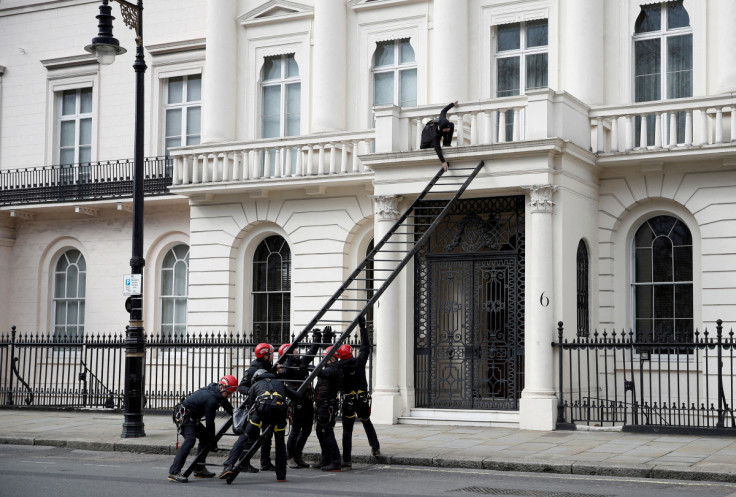
The new disclosure requirement "is just one tool in the Government's arsenal to crack down on money laundering by shining a light on the real owners of UK properties," a spokesperson for the business ministry said. "The register is already working to flush out criminals and their ill-gotten wealth, with Companies House working closely with enforcement agencies to prepare cases against those who have not complied."
Companies that fail to make accurate disclosures could face restrictions over selling their property, fines of up to 2,500 pounds a day, and individuals can be jailed for up to five years.
A British government official, who asked not to be named, said Monday that the level of compliance had been "disappointing." Discussions within the government were under way to allocate around 20 million pounds for increased enforcement, added the official, who has knowledge of the government's implementation efforts.
A spokesperson for Abramovich didn't respond to requests for comment.
Potanin is president of metals giant Nornickel, or Norilsk Nickel. The company told Reuters a subsidiary holds a long-term lease for office premises in London and that Potanin filed the disclosure as the ultimate beneficial owner of Norilsk Nickel.
London-based representatives listed on the new register for Shuvalov and Frolov didn't respond to requests for comment.
'LARGE' HOLES
From the stuccoed mansions of London's embassy district of Belgravia to the glass penthouses along the River Thames, the British capital's high-end real estate has long attracted Russian and other wealthy foreign buyers.
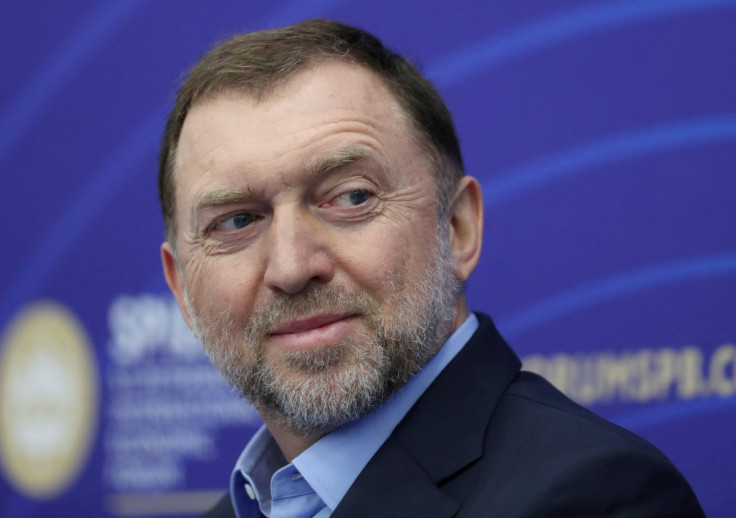
That has included illicit funds. Transparency International UK, an anti-corruption campaign group, estimates 6.7 billion pounds - or about $8.3 billion - of dubious foreign money has poured into British property in total since about 2000, including 1.5 billion pounds from Russians accused of corruption or links to the Kremlin.
London's luxury property market has resembled "a giant washing machine" for overseas laundered money in recent decades, said Jonathan Benton, former head of the UK's National Crime Agency's international corruption unit.
Benton said the new register is an important step towards transparency but that the legislation had "large and quite obvious holes" that leave corrupt, wealthy individuals able to find ways to avoid revealing what they own.
Among key exemptions: Beneficial owners are only required to register if they own more than 25% of the property-owning foreign company. And, in most cases, if foreign companies purchased the property before 1999 or hold UK property in a trust they don't need to publicly disclose the beneficial owners. Where the beneficial owner is a trustee, the property holder must provide information to the government about the trust and people connected to it, though the information isn't made public.
In a further limit to disclosure, those registering aren't required to include the address of the property owned.
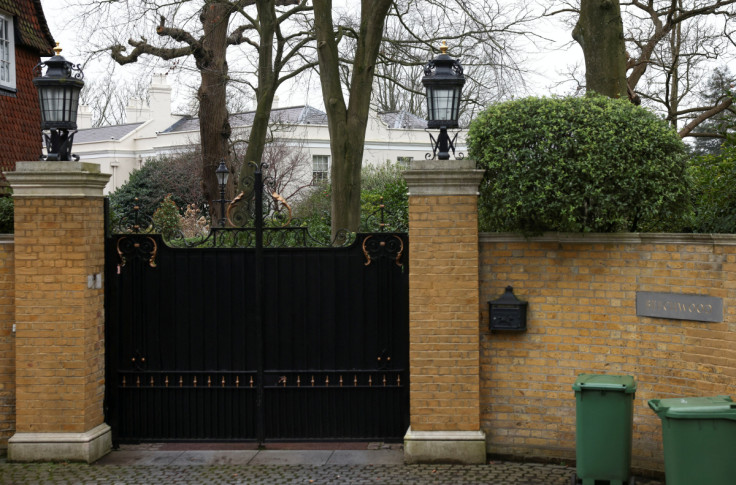
Successive British governments have received warnings about potential flaws since plans to introduce the register were announced seven years ago.
In 2019, a cross-party committee of politicians said the government should lower the threshold of ownership to force more people to declare the property they own and warned of the risk of the use of trusts to sidestep the rules. The City of London Police told the committee if trusts were excluded, "the process will be fairly pointless."
Three government officials told Reuters that exemptions were included to avoid the reporting requirements being too onerous, such as for major overseas companies that have small ownership stakes in lots of different UK properties.
'PUTIN'S INNER CIRCLE'
Among the dozens of Russian nationals who have submitted information to the register is Shuvalov, chairman of Russian state development bank VEB, who the British government has described as a "core part of Putin's inner circle." According to the new register, Shuvalov and his wife declared ownership of a UK-property owning entity called Sova Real Estate, based in Moscow.
Separate UK land-ownership records show Sova Real Estate purchased two apartments overlooking the River Thames for 11.4 million pounds in 2014. The following year, Russian opposition politician Alexei Navalny revealed that Shuvalov owned the properties.
Other high-profile Russians who have been linked to UK property didn't appear on the register as of early Tuesday, including those sanctioned by Britain for connections to Putin and his government.
One property linked to Abramovich is a mansion on Kensington Palace Gardens, one of the world's most expensive streets. Planning applications for the property have been made in the Abramovich name and land-ownership records show the property was purchased by a Cyprus-based company that provided as a contact a UK company that corporate filings show was ultimately controlled by Abramovich. Last year, Abramovich transferred control of the ultimate parent company to an associate, according to filings.
The Cyprus-based company, A. Corp Trustee Limited, wasn't listed on Britain's new property register as of Tuesday morning. Reuters was unable to independently confirm whether Abramovich currently owns property in Britain.
Two other Russian oligarchs who Britain has previously said are owners of millions of pounds worth of UK properties whose names also weren't on the new register as of early Tuesday were billionaire businessman Alisher Usmanov and aluminium tycoon Oleg Deripaska.
Usmanov's properties include Beechwood House in London's leafy Highgate neighbourhood, the British government said in March last year when it announced sanctions against him.
Land ownership records show Beechwood House was purchased in 2008 by Isle of Man-based Hanley Limited for 48 million pounds. A listing on the UK's new property register for Hanley Limited identifies the beneficial owner as a Swiss company called Pomerol Capital Sa.
A spokesman for the Russian businessman said: "Mr. Usmanov does not own the properties listed by you. The questions should be addressed to their owner." Pomerol Capital did not respond to requests for comment. Reuters was unable to independently confirm whether Usmanov currently owns any property in Britain.
Deripaska was identified as the beneficial owner of a mansion in Belgrave Square in London High Court documents in 2007. Land ownership records show the house was purchased in 2003 by Ravellot Limited based in the British Virgin Islands. Ravellot also wasn't on the new property register.
A spokesperson for Deripaska didn't respond to requests for comment. A spokesperson had in a March 2022 statement said that the house belongs to members of the businessman's family rather than to him personally.
Margaret Hodge, a lawmaker for the opposition Labour Party who has focused on anti-corruption, said Reuters' findings show the government has failed to stop President Putin's supporters "concealing their assets" in Britain.
(Editing by Cassell Bryan-Low)
Copyright Thomson Reuters. All rights reserved.




















